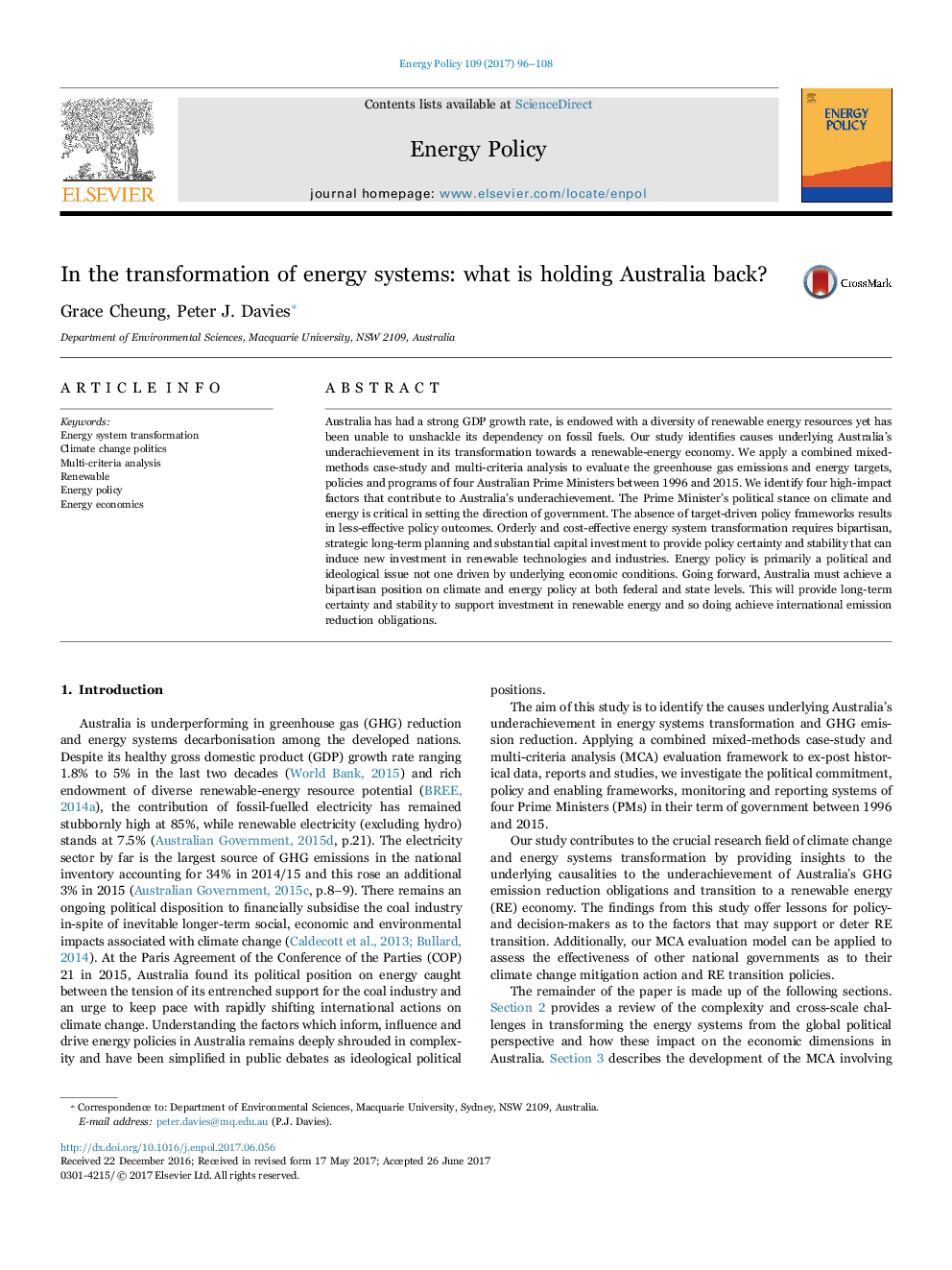ترجمه فارسی عنوان مقاله
در تحول سیستم های انرژی: چه چیزی استرالیا را برگرداند؟
عنوان انگلیسی
In the transformation of energy systems: what is holding Australia back?
| کد مقاله | سال انتشار | تعداد صفحات مقاله انگلیسی |
|---|---|---|
| 103897 | 2017 | 13 صفحه PDF |
منبع

Publisher : Elsevier - Science Direct (الزویر - ساینس دایرکت)
Journal : Energy Policy, Volume 109, October 2017, Pages 96-108
ترجمه کلمات کلیدی
تغییر سیستم انرژی، سیاست تغییر آب و هوا، تجزیه و تحلیل چند معیاره، تجدید پذیر، سیاست انرژی، اقتصاد انرژی،
کلمات کلیدی انگلیسی
Energy system transformation; Climate change politics; Multi-criteria analysis; Renewable; Energy policy; Energy economics;

